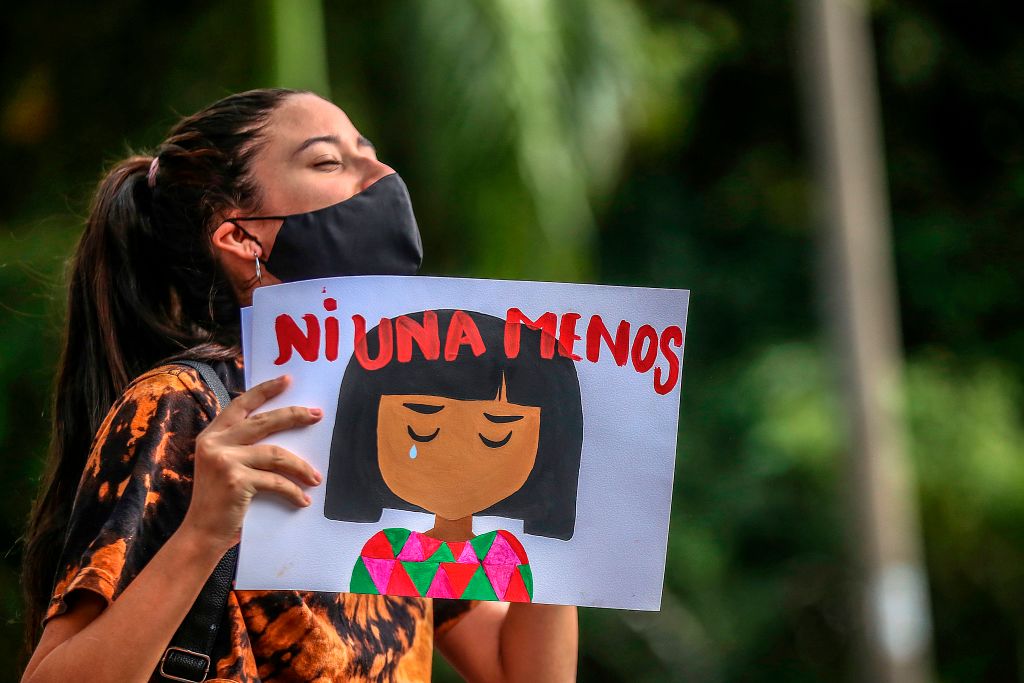As the pro-life movement in the United States looks with optimism to the very possible overturning of Roe v. Wade by the US Supreme Court later this year, the tide seems to be flowing in a different direction down south.
First came Argentina, where the Senate passed a highly contested bill in early 2021 legalizing abortion in the first fourteen weeks of pregnancy. The vote was preceded by months of protests, debate, and even a series of personal pleas from the world’s most famous Argentinean, Pope Francis.
In September, Mexico’s Supreme Court struck down abortion bans in two states, effectively paving the way for decriminalization nationwide.
Most recently, Colombia effectively legalized abortion in the first twenty-four weeks of pregnancy. The February 21 ruling by the nation’s highest court agreed with a pro-choice umbrella group’s challenge that the country’s restrictions on abortion discriminated against “gestating persons,” especially the poor. Perhaps most alarmingly, the decision allows for the abortion at any point in a pregnancy of babies with disabilities, in addition to those conceived after rape.
While abortion has long been legal in much of the West, not so in Latin America, where the influence of Catholic moral teaching has long served as a reference point for legislators across the political spectrum.
So why the push for abortion now in Latin America?
The loosening of restrictions in these countries owes some credit to the so-called “Green Wave,” an activist movement named after the color of handkerchiefs brandished by women at pro-abortion demonstrations in Argentina, and later, countries like Mexico and Colombia.
The green cloths now synonymous with abortion rights advocacy in South America were first introduced in 2015 by activists demanding an end to femicide in Argentina, which has seen a disturbing spike in fatal violence against women in recent years.
But the “Ni Una Menos” (“Not One Woman Less”) movement quickly moved on from the scourge of domestic violence. According to one founder, there was “no mention of abortion” in its founding document, “but there was talk of the right to say no to unwanted pregnancy” and of “comprehensive education on sex” at the time.
Since then, pro-abortion feminists have run an effective public opinion campaign casting legal abortion as a defense for women against the sexism and stark economic inequality deeply ingrained in Latin American countries. The freedom of any woman, poor or rich, to end her unborn child’s life has been advertised as a necessary step towards economic justice. In the words of one Colombian doctor I spoke to, the court’s February 21 ruling was the achievement of an “outdated Marxism” (“Marxismo trasnochado”).
While this new struggle has been going on, the most authoritative voice against abortion, the Catholic Church, has largely been missing in action. Throughout Latin America, the Catholic Church is hemorrhaging members to an ascendant secular culture and hard-proselytizing evangelical Protestantism. In the meantime, the Church bishops, especially in Colombia and Mexico, have been focused on other issues, among them efforts to welcome the masses of refugees pouring in from Venezuela and Central America, respectively, and standing with the victims of decades-long drug cartel-related violence and government corruption.
Compared to the energy spent in other areas, the Church’s efforts to fight the abortion push seem weak and pro-forma, reduced to trying to compare abortion to other social justice concerns.
“Protecting the supposed right to suppress an innocent human life puts at risk the very foundation of our social order and the rule of law,” Colombia’s bishops warned after the abortion ruling that seemed to recall last year’s turbulent protests there.
In his home country of Argentina, Pope Francis used some of his strongest language on abortion to date to decry the Senate bill. He compared abortion to “using a hitman to solve a problem” in a handwritten letter to a group of women from Buenos Aires’s slums and described it as “a human problem prior to any religious option” in another written to a priest friend serving among the poor.
But despite the letters’ eventual publication, the pope’s appeals seemed to have little effect. A bill legalizing abortion passed the Senate and was signed into law by Argentinean president Alberto Fernandez in early 2021.
Certainly, abortion rights campaigners’ gains have been limited until now: abortion remains illegal in most cases in most Latin American countries. But these new developments in three, once solidly anti-abortion countries signal a tough road ahead for the pro-life movement, especially in the face of the ongoing influence of pro-abortion NGOs like the Center for Reproductive Rights and Ipas.
For the Catholic Church, the shifting attitudes should come as a wake-up call. Perhaps the legacy of colonial Christendom has lulled its leaders into a false sense of complacency, and the shrinking majorities of Latin American Catholics can no longer be counted on to stand against moral evils in the public square like before.
The scientific evidence about the harm of abortion, as Pope Francis has noted, is on the pro-life side. Saving the lives of unborn children and their mothers is an act of love, despite the efforts of certain foreign, well-funded groups to convince women otherwise.
And that is a message worth spreading.


















